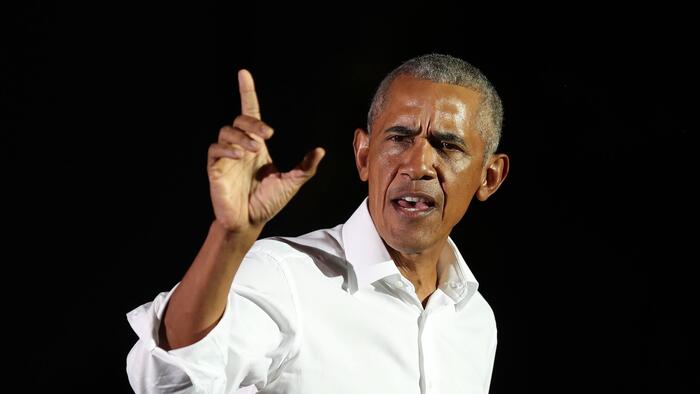In recent months, reports on Barack Obama’s post-presidency activities have often painted a polished picture that overlooks the troubling dynamics of his continued influence in American politics. A particularly significant development arose in the summer of 2024 when Obama became a prominent figure in the government’s efforts to censor the internet and launched a campaign against gun ownership. Such involvement would likely have drawn criticism in previous eras, especially as it seems to infringe on both the First and Second Amendments. However, the mainstream media’s allegiance to those in power has led to a lack of scrutiny regarding these matters, fostering an environment where Obama’s actions are largely unreported and unquestioned.
Critics of Obama assert that he has never truly been a leader but rather a figurehead who chases celebrity and wealth. Post-presidency, there is a view that Obama has focused on accumulating financial gains through platforms like Netflix and Spotify, and enjoying a luxurious lifestyle. Even as he occasionally appears beside President Biden, signaling to many that he is still directing policy, the reality is far more complex. Many observers characterize him as a narcissistic figure more interested in accolades than in guiding significant political changes. This perception raises questions about his substantive contributions since leaving office and suggests an underlying aim to maintain relevance and support through alternative forms of influence.
Obama’s presidency is framed by critics as a case study in the dangers of a leader with minimal real-world experience who merely reflected the Democratic Party’s ideals. While he served as their political darling, his administration unwittingly sowed the seeds of a future that later hurt the party itself. The Democratic leadership, particularly under figures like Nancy Pelosi and Obama, appears to have underestimated the ramifications of backing Joe Biden as the 2020 nominee. Biden’s quick embrace of Kamala Harris left the leadership scrambling and ultimately contributed to the Democrats’ losses in subsequent elections. This reflection on the electoral decisions underscores how the myth of Obama’s political genius was overly inflated, masking the considerable damage inflicted on the party that had once revered him.
Looking historically at the Democratic Party’s trajectory during and after Obama’s administration reveals a sharp decline in electoral power. Since his tenure, the Democrats have seen a marked decrease in representation at every level of government. The steady erosion of party strength post-Obama correlates with significant losses in congressional seats and governorships, illustrating that while Obama was publicly celebrated, his legacy may ultimately not reflect the party’s best interests. It raises the question of whether the Democratic Party had become more enamored with Obama’s personal appeal than focused on building a lasting political infrastructure.
Obama’s presidency has been criticized for exacerbating national division rather than uniting the country during his time in office. His strategies often sought to highlight and exploit societal fractures, leading critics to frame his administration as one that inflamed racial tensions rather than ameliorated them. The perceived radicalism of his policies and rhetoric reportedly set the stage for a political landscape characterized by increasingly polarized factions. The legacy of these policies not only sparked movements like the Tea Party but also fostered discontent that later facilitated the rise of Donald Trump—a man who positioned himself against the very establishment Obama represented.
With the results of the recent elections heralding a Republican resurgence, questions now loom over the Democratic Party’s future direction and Obama’s influence. Generational shifts in voter attitudes reveal a growing disengagement from Obama’s ideals among younger voters, indicating a significant disconnect between his legacy and the aspirations of newer generations. As Trump gears up to take charge again, some observers speculate that if he successfully addresses pressing national issues, he may lay to rest many of the lingering impacts of Obama’s influence, potentially reshaping American political dynamics for years to come.

